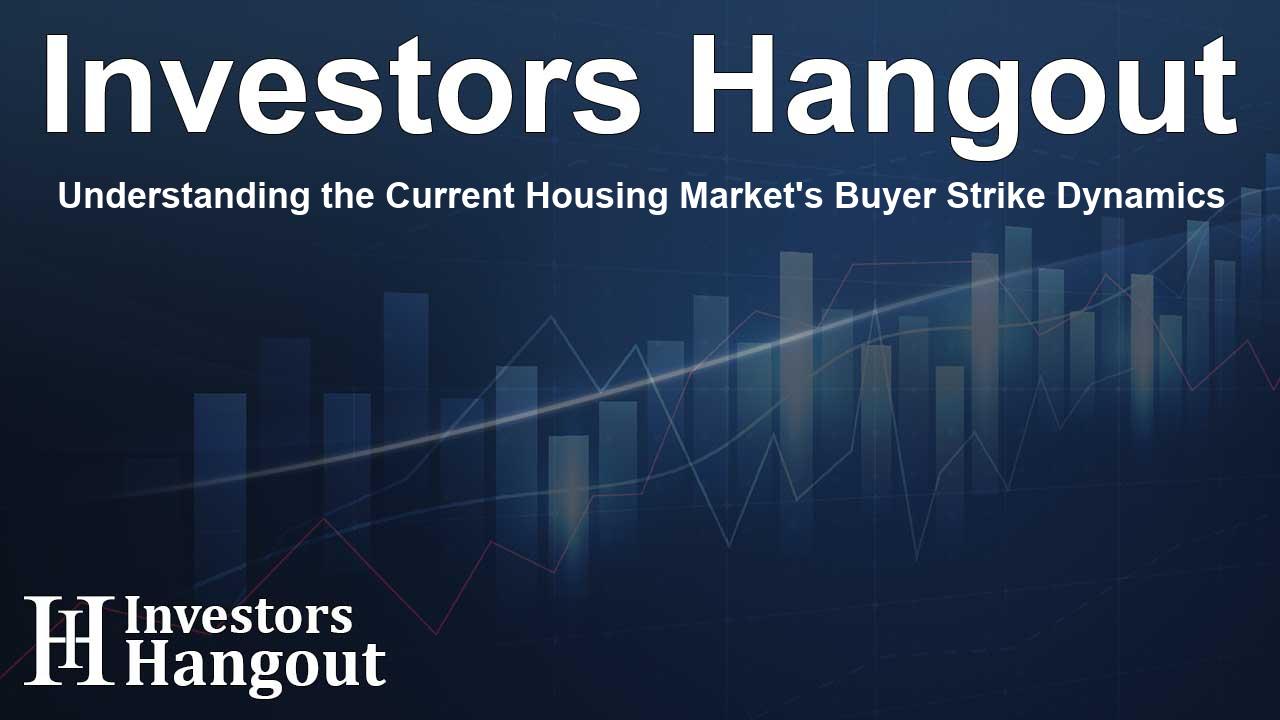Understanding the Current Housing Market's Buyer Strike Dynamics

Understanding the Current Housing Market: The Buyer Strike Explained
Although mortgage rates have recently dipped, many experts expected a different reaction from prospective homebuyers. Instead of seeing an uptick in buying activity, the market is facing what analysts are calling a "buyer strike." This hesitation among buyers is strikingly apparent and largely stems from various economic indicators and sentiment shifts.
Insights from Polling Data on Homebuying Sentiment
Nick Gerli, the CEO of Reventure Consulting, has been meticulously tracking trends among buyers. In a recent survey of 5,000 people, an astonishing 91% reported that even with lower mortgage rates, they still don't feel motivated to buy a home. This gap between reduced rates and buyer engagement indicates that there are more profound issues influencing their decisions.
Market Sentiment and Historical Trends
Gerli's findings align with wider market statistics. A survey from the University of Michigan shows that homebuying sentiment has plunged, with 87% of Americans believing it's a bad time to purchase a home. This level of pessimism surpasses that seen in the early 1980s when mortgage rates peaked at 18%.
How Home Prices Contribute to Buyer Hesitation
Interestingly, this trend persists even as the median monthly housing payment in the U.S. has fallen to $2,558, reflecting a 1.3% decrease from the previous year. This small reduction doesn't seem to ease the worries of potential buyers.
Price Stability Amid Limited Inventory
A key factor in the ongoing reluctance is the current median sale price of U.S. homes, which stands at $388,085—a 3.7% increase year-over-year and quite close to the record high set in July. This limited inventory is a major factor keeping prices high, resulting in a standoff where buyers and sellers struggle to find mutual agreement.
Community and Historical Influences on Market Dynamics
Gerli additionally posits that we're likely experiencing one of the largest housing bubbles in the last 134 years when adjusted for inflation. Historically, during the period from 1890 to 1990, home prices seldom exceeded 20% above their long-term averages. Changes in Federal Reserve policies over the last two decades have significantly inflated values, creating a mismatch between how buyers perceive prices and the expectations of sellers.
The Economic Climate’s Effect on Housing Market Trends
Moreover, the prospect of an economic recession casts a shadow over the housing market. An uptick in unemployment could lead to forced sales, possibly prompting significant price declines. Historical data reveals a strong connection between rising unemployment rates and increased mortgage defaults, potentially flooding the market with available homes and altering buyer attitudes.
Sellers' Equity and Buyer Perceptions
At present, homeowners hold a substantial combined equity of about $32 trillion, which is more than double the amount during the height of the 2006 housing bubble. This considerable cushion makes many sellers hesitant to lower their prices, while buyers regard these elevated prices as inflated and unattainable.
The Future Landscape of the Housing Market
As the market finds itself in this precarious situation, conventional mortgage models struggle to accurately forecast upcoming trends. The recent decrease in mortgage rates, combined with historical inflation factors and today’s economic conditions, creates a complicated environment for both buyers and sellers.
Frequently Asked Questions
What factors are contributing to the buyer strike in the housing market?
The buyer strike is driven by a mix of high home prices, unfavorable market sentiment, and historical data indicating inflated valuations.
Why are potential buyers cautious despite lower mortgage rates?
Many buyers see current home prices as unrealistic and excessively inflated, causing reluctance to engage in purchasing even with lower borrowing costs.
How has the economic sentiment shifted among American homebuyers?
Surveys indicate a significant downturn in homebuying sentiment, with a large number of Americans considering it a poor time to make a purchase.
What historical factors are influencing today's housing market?
The current housing market reflects trends not witnessed for over a century, suggesting there may be an unsafe bubble forming.
What could lead to changes in housing market dynamics?
A recession characterized by rising unemployment and forced sales could result in major price decreases and a surge of available homes on the market.
About The Author
Contact Henry Turner privately here. Or send an email with ATTN: Henry Turner as the subject to contact@investorshangout.com.
About Investors Hangout
Investors Hangout is a leading online stock forum for financial discussion and learning, offering a wide range of free tools and resources. It draws in traders of all levels, who exchange market knowledge, investigate trading tactics, and keep an eye on industry developments in real time. Featuring financial articles, stock message boards, quotes, charts, company profiles, and live news updates. Through cooperative learning and a wealth of informational resources, it helps users from novices creating their first portfolios to experts honing their techniques. Join Investors Hangout today: https://investorshangout.com/
The content of this article is based on factual, publicly available information and does not represent legal, financial, or investment advice. Investors Hangout does not offer financial advice, and the author is not a licensed financial advisor. Consult a qualified advisor before making any financial or investment decisions based on this article. This article should not be considered advice to purchase, sell, or hold any securities or other investments. If any of the material provided here is inaccurate, please contact us for corrections.
